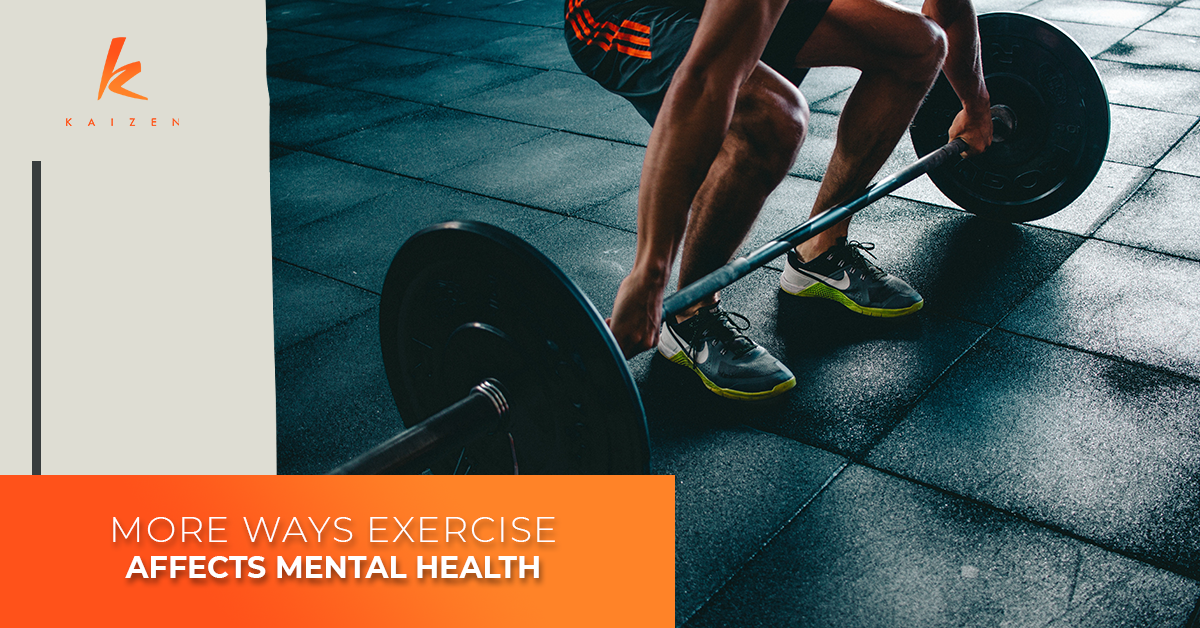Here at Kaizen Academy, we continually stress the importance of exercise as a means of dealing with mental health issues like low self-esteem, depression, and even behavioral issues. Although exercise is not an all-in-one solution to these problems, it’s a useful tool that we use to help young men rebuild their self-worth and reinforce positive habits. Visit our site to learn more about the recreational activities we implement into our residential treatment programs, or read on to learn what makes exercise such a powerful tool for combating mental health and behavioral problems in children.
More Ways Exercise Affects Mental Health
More Ways Exercise Affects Mental Health

Improved Self-Esteem And Confidence
Many health conditions are brought on by or made worse by a lack of confidence and low self-esteem. Mental health illnesses like depression are characterized by persistent sadness or lack of interest in daily life. Much of which could be due to a lack of confidence, poor health, or a lack of passion for hobbies or sports. Exercise often helps people realize that there are a lot of things they can work toward, and they can always be happy with the progress they’re making, even if it is slow. In addition to this, many people will see a significant boost to their confidence and mental health as they lose weight or gain muscle.
It Makes You Feel Good
Any form of exercise releases serotonin and endorphins, two hormones that cause us to feel happy, alert, and helps regulate our mood. Additionally, exercising outdoors will help reduce feelings of loneliness, isolation, stress, and anxiety, all of which lead to or contribute to the onset of mental health conditions and behavioral issues.
It’s A Healthy Pastime
When someone’s mental health is at risk, it’s very important that they don’t fall into unhealthy habits. For example, someone who experiences a lot of stress may resort to eating a lot of unhealthy sweets that will give them some instant gratification, but in the long term, can lead to adverse health effects. Exercising, in and of itself, is healthy, but it can also help people keep their mind off of or avoid unhealthy habits.
It Reduces Self-Deprecating Thoughts
Regardless of whether you’re exercising specifically to lose weight or you’re pursuing a passion like biking, hiking, or rock climbing, exercise is a great way to boost self-esteem. Although there may be a temptation to stay cooped up in your home, getting out and doing something active will improve your physical health and generally improve your outlook on life.
How Much Exercise Is Needed?
There’s no right or wrong answer to this question. Although most doctors recommend 30 minutes of exercise a day, this is usually referring to physical health and not so much mental health. Ultimately, you should listen to what your body is telling you and use that as a determining factor. If you’re experiencing loneliness, anxiety, stress, or poor self-esteem, consider increasing the amount of exercise you do daily. However, even if you’re feeling fine, you should maintain some sort of an exercise routine, even if it’s not every day.
Learn About Kaizen Academy
Here at Kaizen Academy, we’ve made exercise a core part of our residential treatment program. We believe that a healthy body is part of a healthy mind and that spending time pursuing interests like running, biking, or climbing is one of the best ways to combat mental health and behavioral issues. Our behavioral therapists are focused on helping young men with developing social skills, reinforcing positive habits such as physical activities, and giving them the skills they need to reach their full potential. If you have any questions or if you’d like a consultation, give us a call today.





